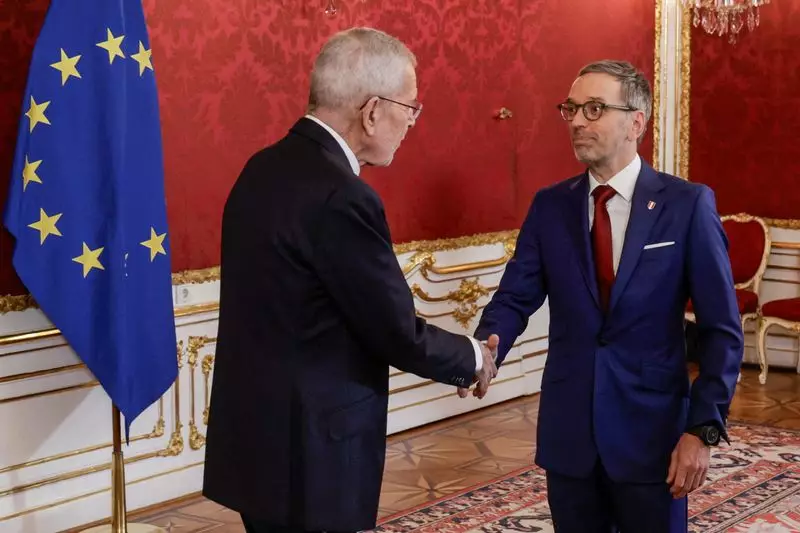The political landscape of Austria is experiencing a significant shift as the far-right Freedom Party (FPO) emerges at the forefront of the political scene following recent parliamentary elections. This article examines the current dynamics in Austrian politics, particularly focusing on the implications of coalition government formation and the potential policy directions that may follow.
The Freedom Party, historically known for its eurosceptic and Russia-friendly stance, achieved a momentous victory in the September elections, garnering over 29% of the votes. Led by Herbert Kickl, the FPO has capitalized on growing discontent regarding immigration and economic policies, positioning itself as a populist alternative to mainstream political parties. Although the FPO has participated in coalition governments in the past, this marks the first time it has emerged as the leading party. Kickl’s mantra, “First the people and then the chancellor,” encapsulates the party’s populist rhetoric and appeals to a base that has grown increasingly frustrated with traditional political structures.
Despite its success, the FPO’s journey toward forming a government has been fraught with challenges. Recently, President Alexander Van der Bellen met with Kickl but opted not to assign the FPO the task of forming a government immediately after the election. This decision stemmed from a lack of potential coalition partners willing to collaborate with the FPO, reflecting deep divisions in Austrian politics.
The conservative People’s Party (OVP), led by Chancellor Karl Nehammer, initially sought to form a coalition government without the FPO. However, negotiations with centrist parties fell apart, leading to Nehammer’s resignation. His reluctance to partner with the FPO was driven by concerns about Kickl’s controversial views, which he labeled as conspiracy theories and a threat to national security. The breakdown of these coalition talks has left Austria at a political crossroads where the FPO stands ready to seize the opportunity.
The interim leadership of the OVP under Christian Stocker marks a crucial juncture. Stocker’s willingness to consider coalition talks led by Kickl represents a significant departure from Nehammer’s stance. OVP officials, including influential figures like Wilfried Haslauer, have publicly acknowledged the necessity of engaging with the FPO, indicating a shifting political climate that may reshape Austria’s governance.
As discussions surrounding a potential coalition get underway, the FPO and OVP confront several pivotal issues that could determine the coalition’s viability. Immigration policy remains a contentious topic, where both parties advocate for stricter measures. However, they also face the complexities of managing Austria’s budget deficit, which is projected to exceed EU limits in the coming years.
Although both the FPO and OVP support tax cuts, differences in their approach to cutting expenditures and addressing social welfare programs could pose significant challenges in negotiations. Additionally, the FPO’s stance against aid for Ukraine and opposition to military initiatives complicates their relationship with the OVP, which may seek a more pro-European Union foreign policy.
President Van der Bellen’s role as a mediator in this evolving political landscape cannot be overlooked. A former leader of the left-wing Green Party, he has consistently voiced his commitment to upholding democratic principles, including human rights and independent media. Van der Bellen’s insistence on maintaining Austria’s EU membership reflects a desire to balance the rise of far-right sentiments with the country’s longstanding commitments to European collaboration.
As Austria’s political environment continues to shift, Van der Bellen aims to ensure that democracy and the rule of law remain intact, even as conversations about a coalition government with the FPO take shape. His remarks indicating a potential for cooperation between the OVP and FPO highlight the need for adaptability in an increasingly polarized political landscape.
The rise of the FPO presents both opportunities and challenges for Austria as it seeks to navigate a turbulent political climate. While coalition talks may pave the way for new governance, the underlying tensions regarding immigration, economic policy, and international alignment will play a critical role in determining the future direction of the country. As political factions reconsider their alliances amidst changing public sentiments, Austria stands at a pivotal moment that could redefine its political identity in the years to come.

